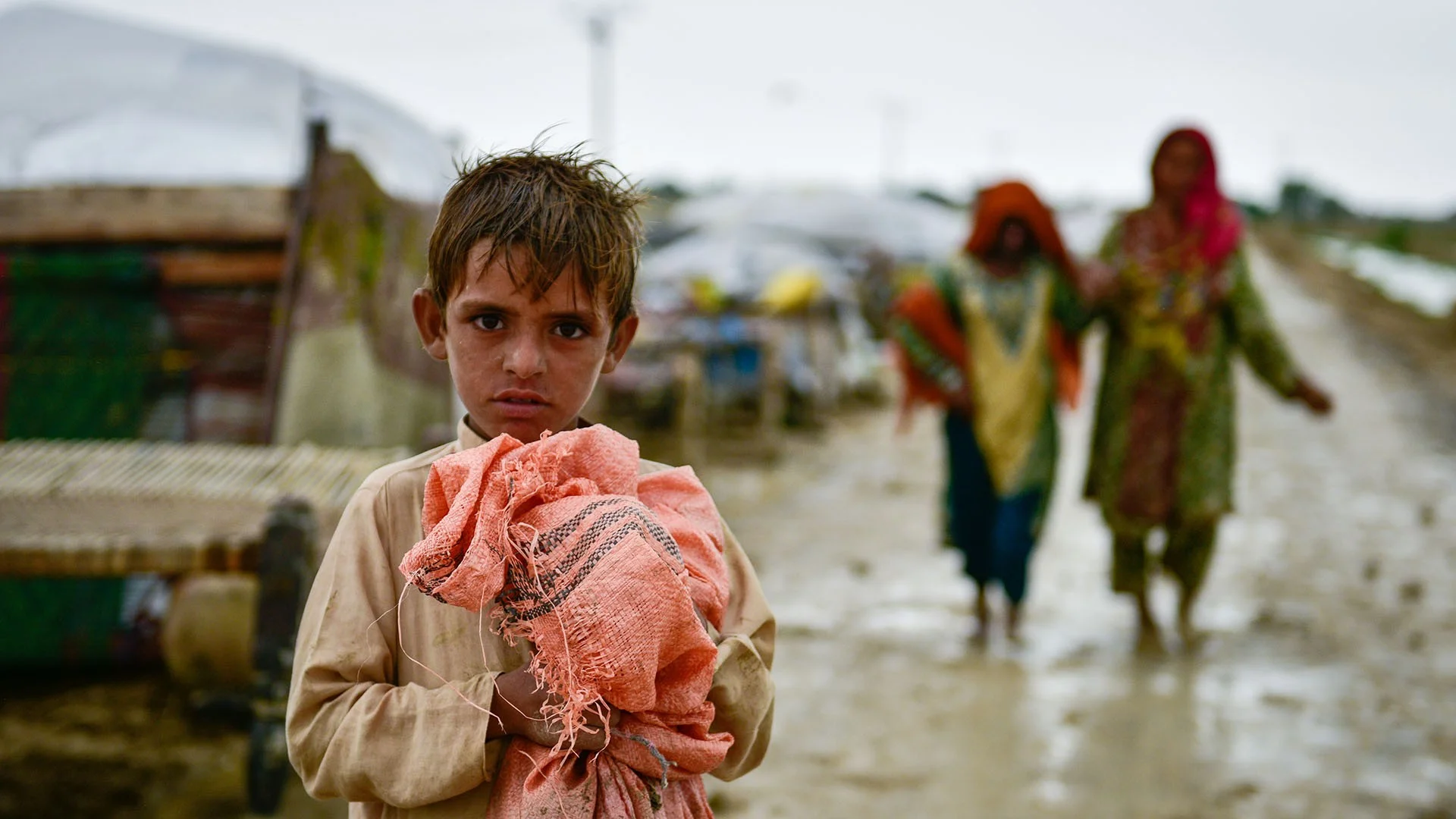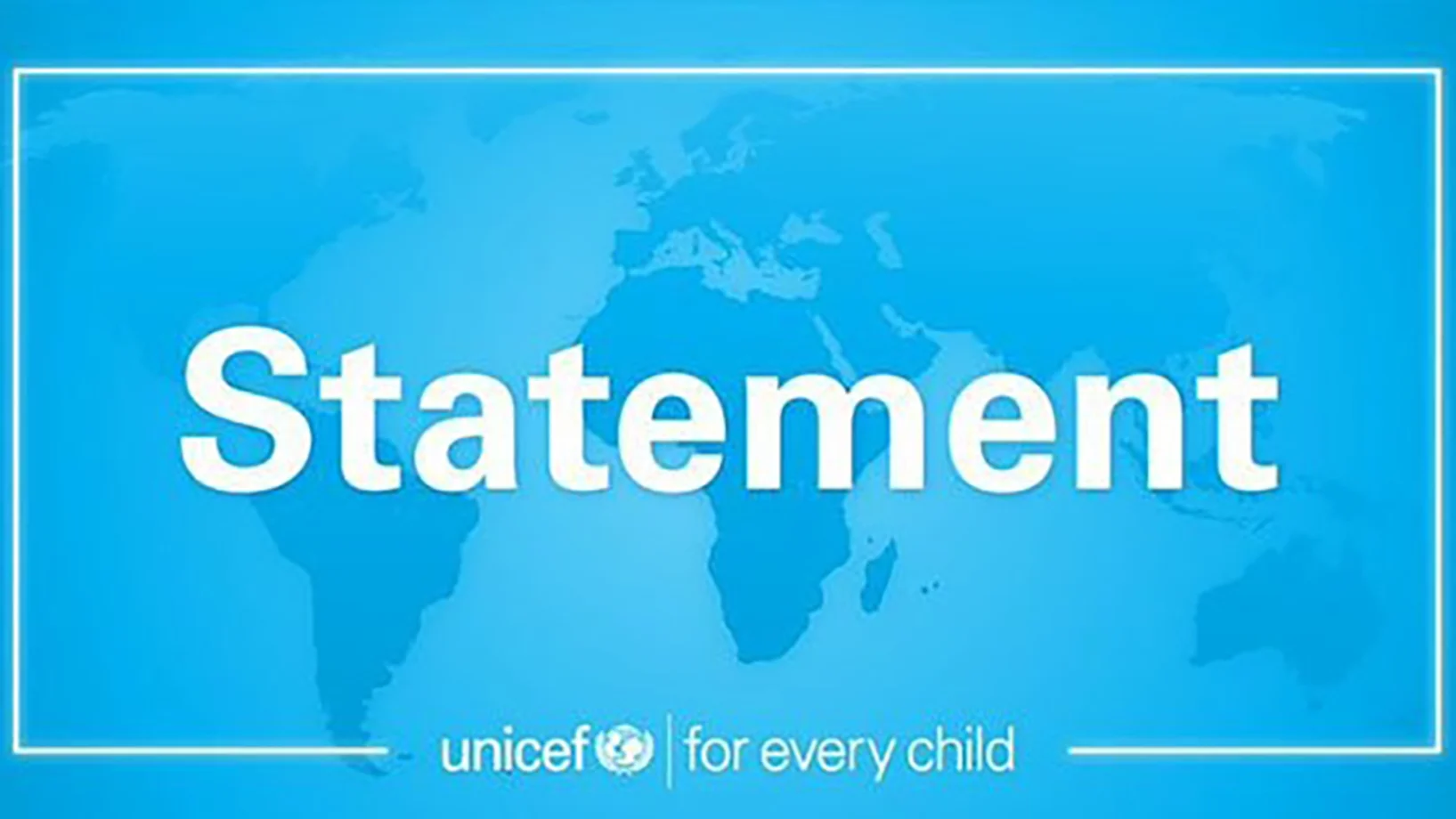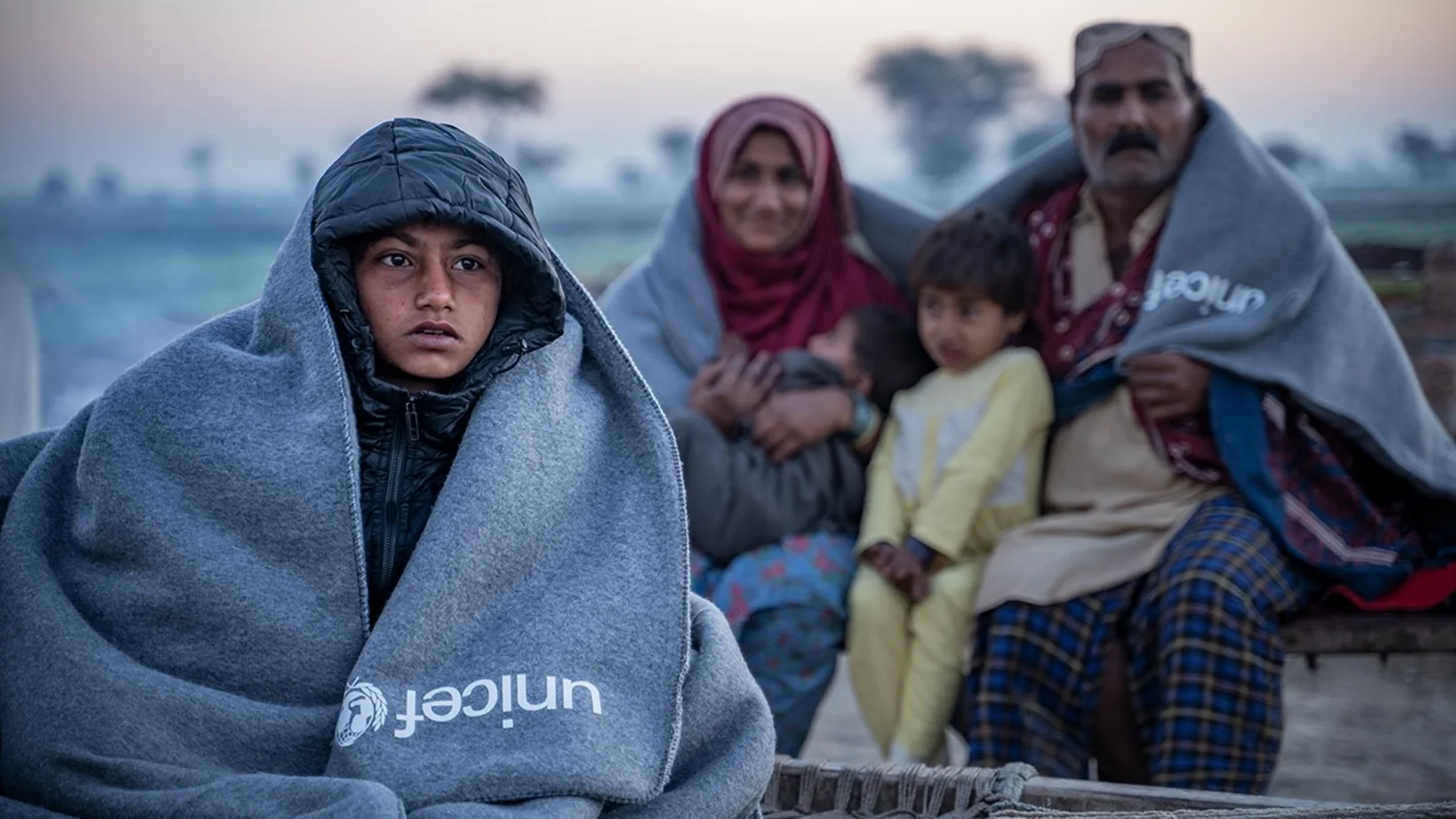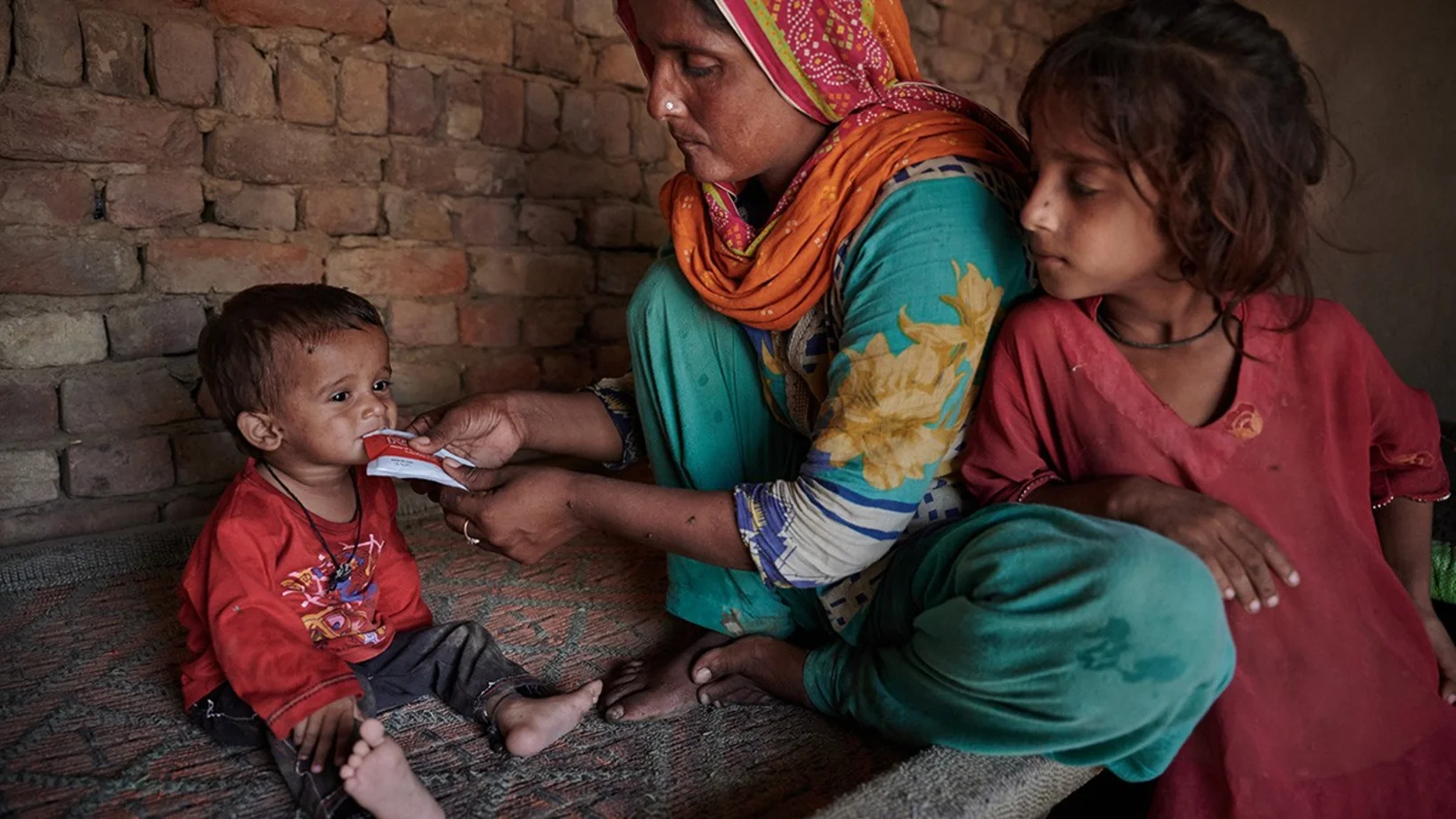Pakistan’s rainy season was especially severe in 2022. Up to five times more water fell compared to the average of the previous 30 years. At least 3.4 million children are at risk from the floods and their immediate impact.
The situation
In the summer of 2022, Pakistan was hit by a particularly strong monsoon. The resulting floods and landslides claimed more than 1,700 lives. Tens of thousands of women, men and children had to flee with their belongings to seek safety.
More than four months after the devastating floods, up to four million children are still living near stagnant and polluted floodwaters. This contaminated water is causing diseases to spread rapidly. A dramatic increase in acute respiratory infections has been observed, especially among children, while the number of children suffering from severe acute malnutrition is also rising steadily.
How UNICEF helps
The need for humanitarian aid in Pakistan is enormous. 33 million people have been affected by the natural disaster, almost 21 million require emergency humanitarian aid, and almost 8 million have had to leave their homes, villages and towns. UNICEF is doing everything it can to support affected children and families in Pakistan and protect them from the dangers of disease and malnutrition.
In flood-affected areas, we are bringing in relief supplies by the ton, including warm clothes and blankets, hygiene items, medicines and water. One million people have already been supplied with clean drinking water. This is crucial, as the risk of disease and resulting malnutrition is very high if people drink water that has been contaminated by the floods.
Around 800,000 children have been medically examined; of these, 60,000 were classified as suffering from severe acute malnutrition and immediately treated with pre-prepared therapeutic food. We have so far provided basic medical care to 1.5 million people and vaccinated 4.5 million children against polio.



